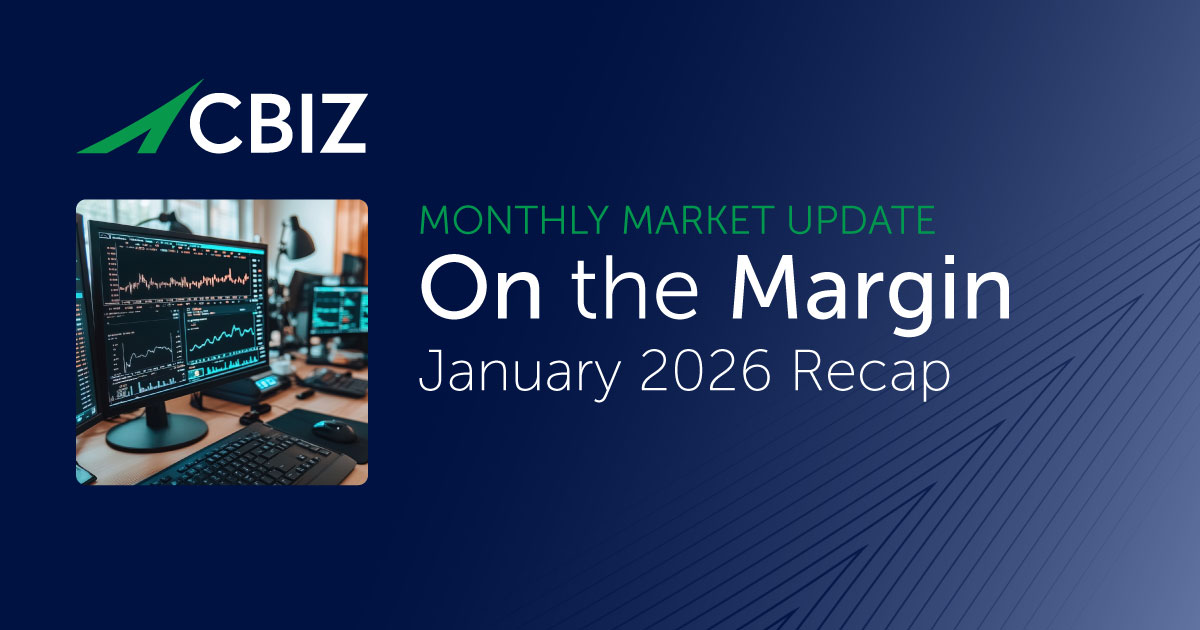On March 10, 2023, Silicon Valley Bank (SVB) became the second-largest financial institution failure in United States history. Subsequently, the Federal Deposit Insurance Corporation (FDIC) was appointed receiver and created Silicon Valley Bridge Bank, N.A (Bridge Bank). On March 17, 2023, SVB’s former parent, SVB Financial Group (SVB Financial), filed for Chapter 11 bankruptcy protection in the Southern District of New York.
SVB Financial Group
SVB Financial Group is a public financial services company with numerous operating subsidiaries and segments. Prior to the collapse of SVB, SVB Financial was comprised of SVB, SVB Capital and SVB Securities. Subsequent to the FDIC’s receivership, SVB Financial no longer holds an equity interest in SVB or any direct affiliation with the Bridge Bank. SVB Financial’s primary operating segments are now SVB Capital and SVB Securities.
Silicon Valley Bank
SVB was a commercial bank that maintained a shared services agreement with SVB Financial, whereby SVB provided various internal services to SVB Financial. This resulted in SVB having physical ownership of most of the books, records and other data related to SVB Financial businesses.[i] Additionally, a majority of SVB Financial employees were SVB employees.
SVB Private is the private bank and wealth management segment of SVB, serving primarily the private equity/venture capital industries.
On March 26, 2023, the FDIC announced that First Citizens Bank & Trust Company (First Citizens Bank) had entered into a purchase and assumption agreement for all deposits and loans of SVB. Depositors of the Bridge Bank will automatically become depositors of First Citizens Bank. As part of the agreement, First Citizens Bank purchased $72 billion of SVB assets at a $16.5 billion discount. Approximately $90 billion in securities and other assets will remain in the Bridge Bank for disposition by the FDIC. The FDIC also reportedly received equity appreciation rights with a potential value of up to $500 million in First Citizens Bank common stock.
Additionally, the FDIC and First Citizens Bank entered into a loss-share arrangement on the commercial loans purchased. The two parties will share in the losses and potential recoveries on the loans covered by the loss-share arrangement. As the SVB crisis nears an end, “The FDIC estimates the cost of the failure of the Silicon Valley Bank to its Deposit Insurance Fund (DIF) to be approximately $20 billion. The exact cost will be determined when the FDIC terminates the receivership.”[ii]
SVB Capital
SVB Capital is the venture capital and private credit fund platform of SVB Financial. At the end of 2022, SVB Capital managed roughly $10 billion of funds, consisting primarily of pooled vehicles investing in growth companies. SVB Capital reported a $180 million loss before income taxes in 2022, compared to net income reported the previous two years. SVB Financial attributed 2022’s poor performance to rising interest rates throughout the year.
SVB Securities
SVB Securities is a registered broker-dealer providing services primarily to the healthcare and technology sectors. Services include capital raising, M&A advisory, structured finance, equity research, and sales and trading. SVB Securities reported a $95 million loss before income taxes in 2022, compared to net income reported the previous two years. Similar to SVB Capital, SVB Securities attributed its poor results to increasing interest rates and a slowdown in capital market transactions.
Financial Warning Signs: Events Leading to Bankruptcy
A Quiet Demise
Several years ago, deregulation policies were set in place that no longer subjected banks with assets less than $250 billion to enhanced scrutiny. Per the FDIC announcement, SVB held $209 billion in assets at the end of 2022, thus flying under the radar.[iii] Of the $209 billion in assets, a significant portion related to customer deposits that SVB invested primarily into longer-term securities that declined in value as interest rates rose during 2022 and 2023.
Since January 2015, SVB Financial received proceeds of $3.3 billion from the sale of Senior Notes, $2.5 billion of which were received in the last 2 years. These funds were to be used for general working capital purposes. However, these cash infusions, especially the funds received over the past two years, highlight SVB Financial’s recent liquidity troubles.
| Senior Notes | |||
|---|---|---|---|
| Insurance Date | Due Date | Amount of Notein millions) | Amount Outstanding as of 12/31/2022 (in millions) |
| Jan-15 | Jan-25 | $350 | $349 |
| Jun-20 | Jun-30 | $500 | $496 |
| Feb-20 | Feb-21 | $500 | $495 |
| Jun-21 | May-28 | $500 | $497 |
| Oct-21 | Oct-26 | $650 | $646 |
| Apr-22 | Apr-28 | $350 | $348 |
| Apr-22 | Apr-23 | $450 | $448 |
| $3,300 | $3,279 | ||
The Nail in the Coffin
On March 8, 2023, SVB announced the sale of substantially all of its bond portfolio, valued at approximately $21 billion, resulting in a loss of approximately $2 billion. Concurrently, SVB attempted to raise roughly $2 billion in capital through the issuance of new common and convertible preferred shares. Based on a potential Moody’s downgrade, among other things, depositors rushed to withdraw their funds, further leading to concerns about SVB’s liquidity and solvency. The bank was shut down on March 10, 2023, with the FDIC appointed receiver.
SVB Financial was dealt a blow when it lost SVB, its main liquidity source. SVB’s receivership additionally triggered default clauses in SVB Financial’s debt documents. Also, in the days immediately following the receivership, SVB Financial was essentially cut off from access to its books, records, files, electronic systems and key employees, all of which were now at the Bridge Bank. SVB Financial was now receiving only limited information under the shared services arrangements.
With few options left, SVB Financial filed for bankruptcy, allowing the parent company to explore strategic alternatives.
Bankruptcy: Key Takeaways
SVB Financial is seeking relief through the Chapter 11 bankruptcy process. Although the parent company filed for bankruptcy, the remaining subsidiaries have not. Therefore, SVB Securities and SVB Capital will continue operating in the ordinary course, notwithstanding SVB Financial’s bankruptcy filing.
SVB Financial’s Balance Sheet
Remaining Assets
Prior to its collapse, SVB’s assets comprised close to 89% of SVB Financial’s total assets. To determine what remains, SVB Financial (the Debtor) is required to file certain statutory filings. Accordingly, SVB Financial has been granted an extension to file its detailed Schedule of Assets and Liabilities and Statement of Financial Affairs to April 20, 2023.
SVB Financial’s remaining assets primarily include over $2 billion in cash and its two non-bank subsidiaries, SVB Capital and SVB Securities; however, a majority of the cash is currently being held in accounts at the Bridge Bank that were frozen by the FDIC. SVB Financial recently gained limited access to some of its cash through a court-approved interim order. SVB Financial has reportedly retained Centerview Partners, Sullivan & Cromwell and Alverez & Marsal as its investment banking, legal and restructuring advisors, respectively. The advisors are pursuing all alternatives.
Creditors
SVB Financial filed a listing of its largest unsecured claims. As previously stated, long-term debt increased rapidly from 2020 to 2022 as SVB Financial sought to shore up its liquidity through the issuance of senior notes, or unsecured bonds. While unsecured bondholders are owed more than $3.3 billion, non-bondholder unsecured liabilities have not yet been quantified.
Courtroom Developments
Cash Management Motion
At the time of filing, SVB Financial held accounts at the Bridge Bank that totaled approximately $2 billion. Under the direction of the FDIC, SVB Financial’s accounts at the Bridge Bank had been frozen. SVB Financial recently gained limited access to some of its cash through a court-approved interim order.
The Debtor estimates that it has an aggregate of approximately $141 million of unfunded equity commitments to certain funds on the SVB Capital platform, of which it will need to disburse approximately $50 million of equity commitments over the next three weeks. The Debtor also provides loans to certain funds on the SVB Capital platform pursuant to its Capital Call Facility. Commitments under the Capital Call Facility are $170 million, with $62 million outstanding as of the Petition Date. SVB Financial has been authorized, on an interim basis, to fund up to $170 million of undrawn commitments under the Capital Call Facility provided that prior to the entry of the Final Order, the Debtor limits (a) post-petition equity investment activities to $20 million, and (b) additional borrowings under the Capital Call Facility to no more than $80 million on a net basis.
Wage Motion
SVB Financial requested to pay certain prepetition employment costs up to $23 million. These amounts include reimbursements to the Bridge Bank under the shared services agreement (inclusive of 110 employees of SVB that are key members of the SVB Capital business). On March 24, 2023, this request was approved on an interim basis for up to $21 million.
| SVB Financial’s outstanding Employment Costs as of March 17, 2023 | |||
|---|---|---|---|
| Description | Amount
(in millions) |
||
| Reimbursement to Bridge Bank | |||
| Wage and Benefits | $11.8 | ||
| Foreign Subsidiaries | $8.3 | ||
| Services for SVB Capital | $0.9 | ||
| Benefits Programs and Related Obligations | |||
| SVB Capital Benefit Program | $0.4 | ||
| 401(k) Plan | $0.5 | ||
| Other | |||
| Third Party Service Provider | $.02 | ||
| Director Compensation Program | N/A | ||
| $ 22.1 | |||
Net Operating Loss (NOL) Motion
SVB Financial has several tax attributes (listed below) related to net operating losses that provide the potential for material future tax savings. The IRS limits the amount of income that can be offset by tax attributes in years following an ownership change. In response, the Debtor is requesting to implement mechanisms that will allow SVB Financial to monitor and object to actions that may impact the value of tax attributes. On March 22, 2023, this request was approved on an interim basis.
| SVB Financial Tax Attributes | |||
|---|---|---|---|
| Description | Amount (in millions) | ||
| Federal NOL Carryovers | $6,400 | ||
| State NOL Carryovers | $4,500 | ||
| Foreign NOL Carryovers | $22 | ||
| State General Business Credit Carryforwards | $16 | ||
| Foreign Tax Credits | $43 | ||
| $10,981 | |||
30 Days Post-Petition
SVB Financial provided its expectations for payroll costs and net cash flows for the 30 days following the Petition Date. The Debtor anticipates an estimated net cash flow deficit of $90 million over these 30 days.
What Comes Next
SVB Financial faced many ups and downs over the last few years. Bankruptcy proceedings could last several months or longer, leading to continuing uncertainty during this time. Regardless of the outcome, historians will likely study SVB’s collapse for years to come, along with the resulting ripple effects.
In the meantime, CBIZ Advisory can assist clients with navigating these troubled waters. Please contact us should you require advice or assistance in any of our specialty areas.
[i] Held by Silicon Valley Bridge Bank, N.A. pursuant to services provide under Master Intercompany Services Agreement dated as of July 19, 2022.
[ii] Per FDIC: PR-23-2023 3/26/2023.
[iii] Per FDIC: PR-16-2023 3/10/2023.
© Copyright CBIZ, Inc. All rights reserved. Use of the material contained herein without the express written consent of the firms is prohibited by law. This publication is distributed with the understanding that CBIZ is not rendering legal, accounting or other professional advice. The reader is advised to contact a tax professional prior to taking any action based upon this information. CBIZ assumes no liability whatsoever in connection with the use of this information and assumes no obligation to inform the reader of any changes in tax laws or other factors that could affect the information contained herein. Material contained in this publication is informational and promotional in nature and not intended to be specific financial, tax or consulting advice. Readers are advised to seek professional consultation regarding circumstances affecting their organization.
“CBIZ” is the brand name under which CBIZ CPAs P.C. and CBIZ, Inc. and its subsidiaries, including CBIZ Advisors, LLC, provide professional services. CBIZ CPAs P.C. and CBIZ, Inc. (and its subsidiaries) practice as an alternative practice structure in accordance with the AICPA Code of Professional Conduct and applicable law, regulations, and professional standards. CBIZ CPAs P.C. is a licensed independent CPA firm that provides attest services to its clients. CBIZ, Inc. and its subsidiary entities provide tax, advisory, and consulting services to their clients. CBIZ, Inc. and its subsidiary entities are not licensed CPA firms and, therefore, cannot provide attest services.















